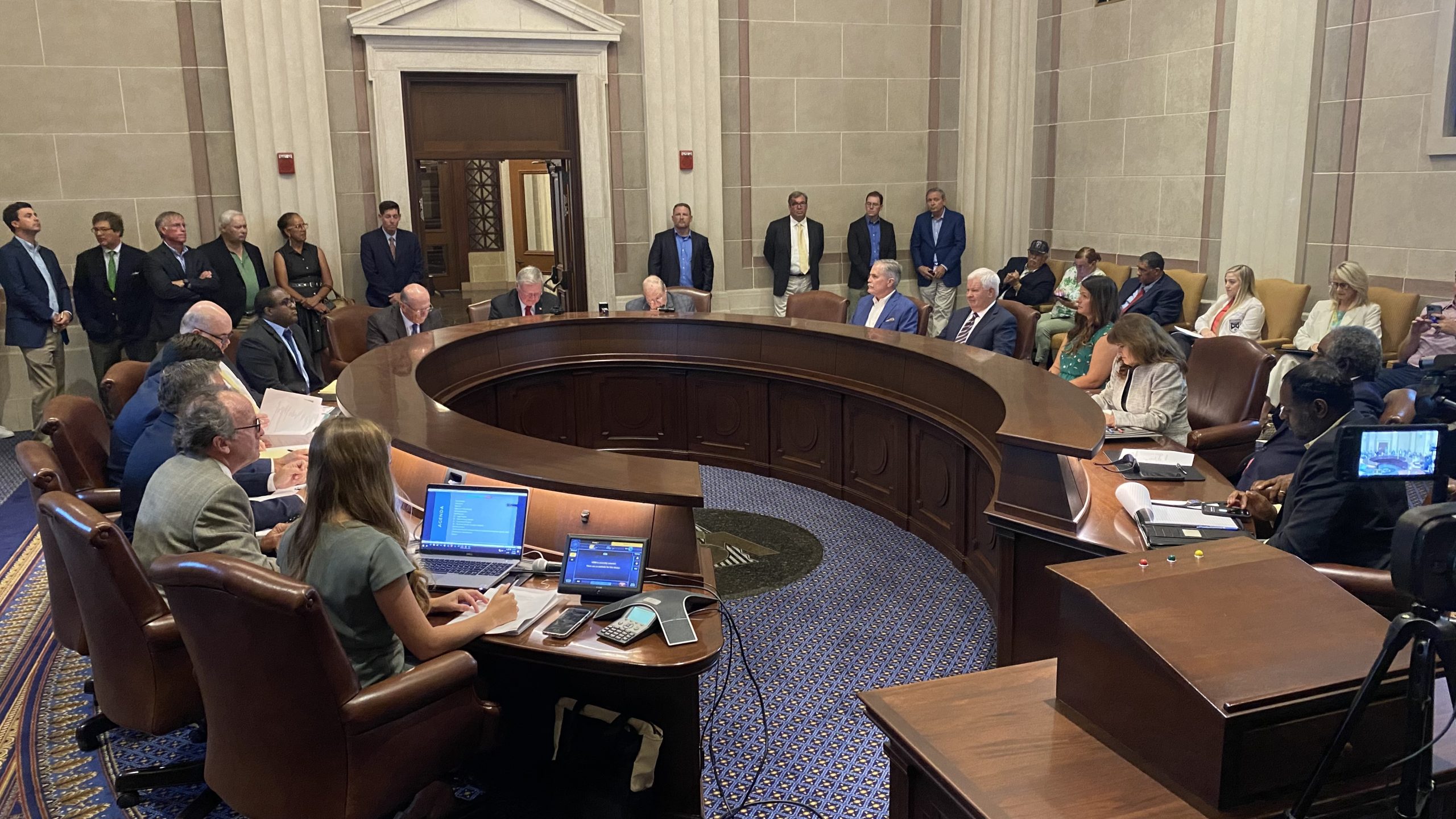The Alabama Medical Cannabis Commission met Monday at a regular meeting that had been set for the issuance of licenses that had been awarded on June 12.
Of course, the commission itself paused the process just four days later after finding potential inconsistencies in the scoring of applicants, so instead the commission used the meeting to discuss a path forward as well as leveling criticism at the media for “unfair criticism” of the commission.
By the end of the meeting, there had been very little change in the status quo of the situation—other than the commission announcing that KPMG is the “big-four accounting company” that has been brought in to audit the scoring and confirm the errors found by the commission.
But there was plenty of debate, sparked primarily by commissioner Loree Skelton, about how the commission is handling the process.
Skelton criticized the commission’s decision to bring in outside evaluators from the University of South Alabama without giving the commissioners any information about the evaluators’ expertise or detailed information about how they reached their conclusions.
“All we got were numbers and percentages,” Skelton said.
Skelton, a healthcare attorney, urged the commission to reverse course and “pause” the evaluators to let the commission take the decision into its own hands, arguing that legal challenges that have been filed could take years to litigate.
Some other members of the commission pushed back against Skelton, arguing that litigation is inevitable considering the licensing limitations imposed by the Legislature against the number of applicants.
There was more support though for Skelton’s idea that the commissioners should at least be able to know more about the background of the evaluators.
Communications director Brittany Peters told the members they were welcome to more info about the evaluators, including their names and resumes, and said the commission simply needs to let the staff know what they want.
“Everything,” Skelton replied.
Other commissioners pointed out that they had the opportunity to do their own independent reviews as well prior to the June 12 meeting, but Skelton said the additional information from the evaluators was meaningless to assist the commission in making its decision because the commissioners got it hours before the meeting and it failed to explain how the evaluators reached their conclusions.
“We already know that the process is flawed,” Skelton said.”We’ve admitted that. But the problem is, the fundamental problem is a core problem, it’s no an adding and subtracting problem.”
Commissioner Charles Price, a retired Montgomery County circuit judge, moved to completely change the process of the commission, asking for Chairman Steven Stokes, an oncologist, to select six members of the commission to evaluate the 38 applicants for integrated facility licenses and narrow the field to 10 for consideration by the commission at its August 10 meeting. The motion failed on a 7-4 vote.
Member Sam Blakemore, a pharmacist, said people need to give the commission “a little leeway.”
“Think about how difficult it has been for us to create something out of nothing,” Blakemore said. “Some folks in this room may think we need to reestablish credibility, but that’s a false narrative.”
McMillan said criticism of the commission’s process in the media has been unfair.
“When you see the unjust criticism that our commission staff have gotten, it’s hurtful,” McMillan said. “And that’s OK, we’re all big boys and girls and we can deal with it. But it’s also unfair to the public to put out stuff that’s just patently untrue and it’s a real human temptation to want to lash out at those who do that kind of stuff, but we’re going to be above that.”
Stokes criticized the company Alabama Always, the original plaintiff suing the commission over its licensure process, for spending as much money as it has to prepare its facility.
“Why would they do that,” Stokes said. “They should have waited until they got a license.”
Stokes recounted talking to a friend who mentioned they felt sorry for the individuals because they had already spent so much money on the facility, but Stokes said he does not feel sorry for them.
“Everybody who’s involved in this thinks there’s going to be a lot of money to be made in this, so let’s don’t feel sorry for the people about not getting as much money as they think they’re going to get,” Stokes said. “Let’s talk about the patients, the cancer patients, the children with seizures, the people who need this medication.”




















































